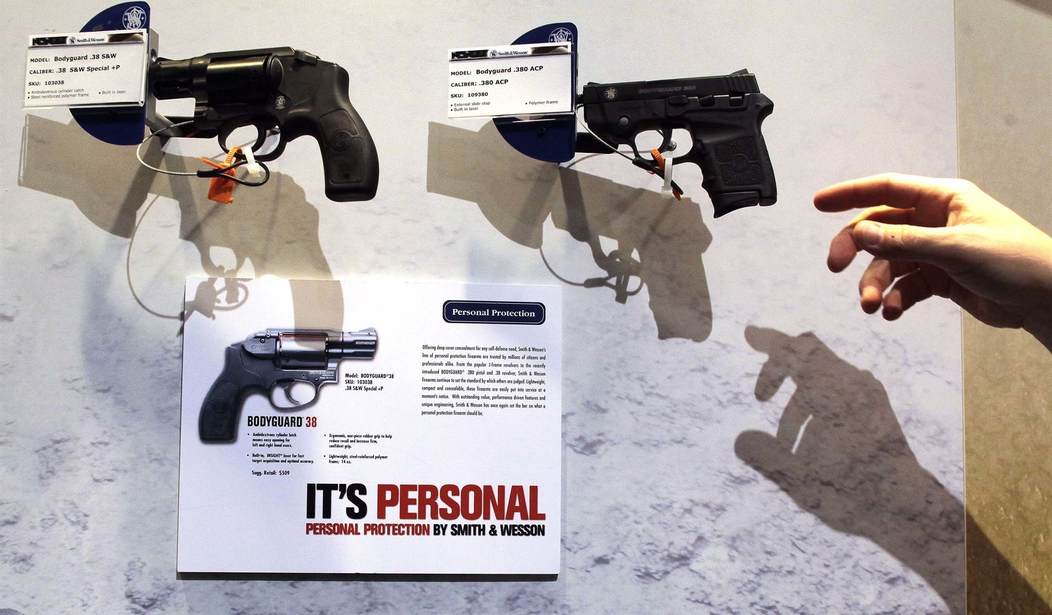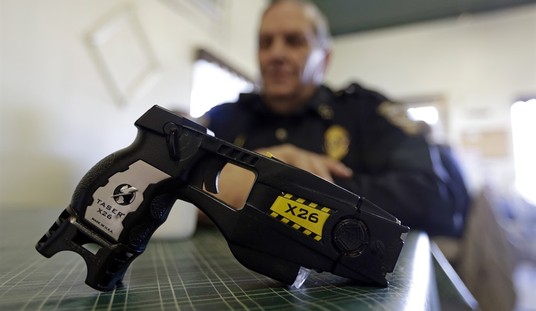Consumer protection laws were created with the intent of protecting people from misleading advertisements that outright lie. It’s one thing to say your coffee is the best–that’s an opinion, after all–but you can’t say your coffee beans were picked by a family in Brazil when they came out of a factory farm in Guatemala.
Things like that.
However, those same laws are now being used to attack our Second Amendment rights.
Just as automakers aren’t held liable for criminals driving cars while on a crime spree, the 2005 Protections of Lawful Commerce in Arms Act protects firearms manufacturers like Smith & Wesson Brands (NASDAQ: SWBI) and Sturm, Ruger (NYSE: RGR) from being held responsible for crimes committed with their products.
Gun control advocates, though, are exploring ways to do an end run around the law by using consumer protection laws to go after gunmakers, and the pursuit of Smith & Wesson in New Jersey may become the test case indicating whether the effort will be replicated across the country against all firearms companies.
A roundabout means of attaching liability
Last October, Smith & Wesson was ordered by New Jersey’s then-attorney general to turn over internal documents regarding its advertising that promoted personal safety through gun ownership. He alleged that by not offering up any proofs to back up its declarations or saying the state limits the ability of its citizens to carry a gun, the gunmaker was engaging in false advertising.
While that may seem like grasping at straws, it’s the same legal strategy being pursued against the remnants of Remington Outdoor by the families of the Sandy Hook school shooting victims.
They’re alleging the gunmaker violated Connecticut’s consumer protection laws because it advertised its Bushmaster XM15 rifle, the gun used by [name redacted] to shoot 20 children and six adults, as a “military-style” weapon. They contend the description and other marketing materials would make a troubled youth like [him] more susceptible to choosing the AR-15-style rifle, which had been legally purchased by his mother.
The question is, will it work?
A lot of it will depend on where they try it. A judge from rural Georgia or Texas is going to toss these cases all day, every day. In California or New Jersey? Not so much.
See, with Smith & Wesson, they said something we all know to be true. Buying a gun makes you safer, particularly if you learn how to use it. At a minimum, it helps you feel safer.
Yet in New Jersey, they reject that truth. To them, guns never make you safer and they’ll be happy to provide multiple (debunked) studies to prove so.
Because Smith & Wesson knew their target audience would likely share their belief. They simply hit those notes.
For me, all this focus on advertising is kind of problematic. You see, you don’t see a lot of ads for gun companies except in places that target the gun community. The only place I’ve ever seen a gun commercial was on the Outdoor Channel, for example.
As such, it seems that targeting advertising and claiming it’s somehow responsible for something like Sandy Hook is beyond ridiculous. They should be forced to prove the killer even saw such advertisements, for one thing.
But this isn’t really about gun companies and their advertising. This is about trying to bankrupt the gun companies. If you can’t destroy the Second Amendment, you can make it meaningless but simply making it impossible to find a gun to buy in the first place. Take out the gun manufacturers and those who cater to hobbyists who build their own firearms and boom. You effectively end new gun ownership without ever having to address the Second Amendment.
That’s what this is really about and we all know it.
Now, the courts need to knock it down. Hard.








